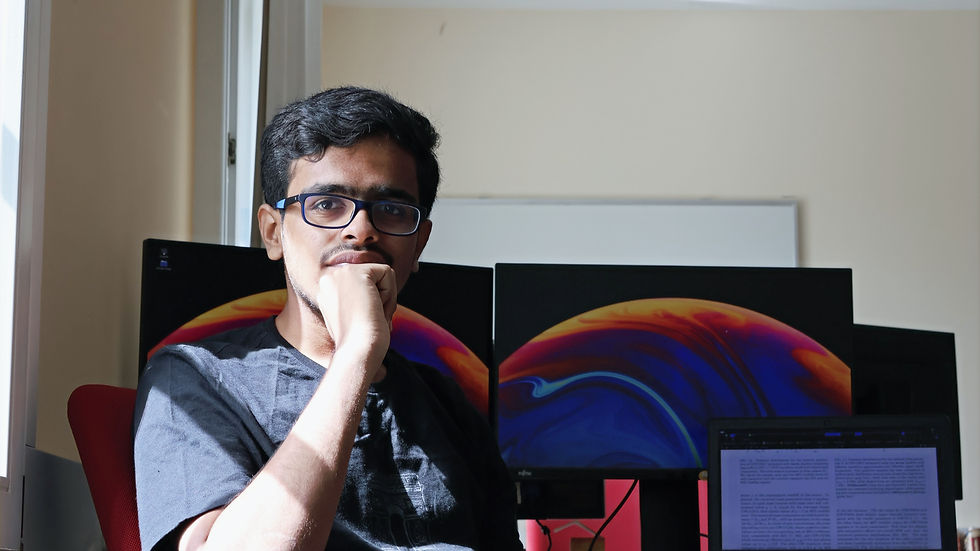Finally, Work!
- Nishkal Rao
- Aug 8, 2024
- 2 min read
Hello there! I'm glad you're here. Welcome to my office at the Theoretisch Physikalische Institut, part of the Friedrich Schiller Universität Jena. I'm excited to share my passion for studying gravitational waves. Let's break it down in a simple way.

What Are Gravitational Waves? In Einstein's Theory of General Relativity, gravity isn't just a force; it's more like a fabric. Imagine space as a stretchy fabric, and when a large object, like a planet, sits on it, the fabric bends. This bending causes other objects to move along curved paths. Gravitational waves are ripples in this fabric caused by such massive events like colliding black holes. Albeit this analogy is technically wrong, but we work with it!
These waves stretch and squeeze space as they pass, making circular objects slightly oval. This effect is incredibly tiny, happening all the time, but we usually don't notice it.
How Do We Detect Them? We built ultra-sensitive machines that fire lasers over several kilometers to detect these minuscule changes in distance. These detectors can measure changes smaller than the size of a proton! The US has two such detectors, and there's a new one approved for LIGO India. These machines have successfully detected gravitational waves, matching the patterns we expected from colliding black holes.
The detection of gravitational waves is a massive confirmation of General Relativity. It would be worrying if we didn't detect anything, but this really confirms that our understanding of gravity and the universe is correct.
Secondly, Gravitational waves open up a new way to observe the universe. Traditional astronomy uses light waves, but gravitational waves provide a fresh perspective, allowing us to see things we couldn't before. It really is a wholly new window into the universe!
I specialize in parameter estimation and inference based data analysis of gravitational waves. This means figuring out the details of astronomical events (like black hole collisions) based on the signals we detect. By simulating signals and analyzing data, I help improve the methods we use to understand these cosmic events.


Comments